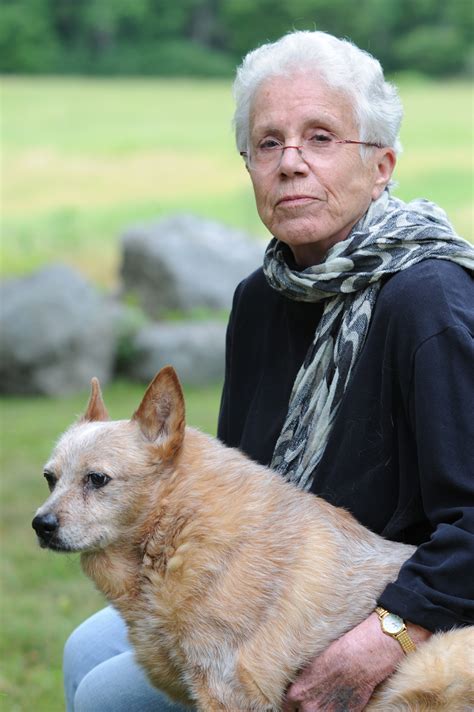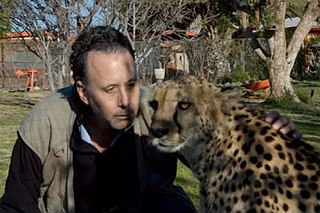A Quote by Neal Stephenson
A species has to become pretty intellectually advanced in order to grasp the concept of death in the abstract, and to dream up the idea of immortality. Long before that (in evolutionary terms) all species with brains have the survival instinct in some form. So, I am just saying that there are many existent proofs of species that have one, but not the other.
Related Quotes
Researchers keep identifying new species, but they have no idea about the life cycle of a given species or its other hosts. They cut open an animal and find a new species. Where did it come from? What effect does it have on its host? What is its next host? They don't know and they don't have time to find out, because there are too many other species waiting to be discovered and described.
The theory of natural selection is the centerpiece of The Origin of Species and of evolutionary theory. It is this theory that accounts for the adaptations of organisms, those innumerable features that so wonderfully equip them for survival and reproduction; it is this theory that accounts for the divergence of species from common ancestors and thus for the endless diversity of life. Natural selection is a simple concept, but it is perhaps the most important idea in biology.
There are millions of different species of animals and plants on earth--possibly as many as forty million. But somewhere between five and fifty BILLION species have existed at one time or another. Thus, only about one in a thousand species is still alive--a truly lousy survival record: 99.9 percent failure!
It must be stressed that there is nothing insulting about looking at people as animals. We are animals, after all. Homo sapiens is a species of primate, a biological phenomenon dominated by biological rules, like any other species. Human nature is no more than one particular kind of animal nature. Agreed, the human species is an extraordinary animal; but all other species are also extraordinary animals, each in their own way, and the scientific man-watcher can bring many fresh insights to the study of human affairs if he can retain this basic attitude of evolutionary humility.
From the point of view of the species, death is part of this whole process. You could say that species have evolved in such a way that individual members last a certain time. Perhaps a certain kind of species would be better able to survive if the individuals didn't last too long. Other kinds could last longer.
I am a member of a fragile species, still new to the earth, the youngest creatures of any scale, here only a few moments as evolutionary time is measured, a juvenile species, a child of a species. We are only tentatively set in place, error prone, at risk of fumbling, in real danger at the moment of leaving behind only a thin layer of of our fossils, radioactive at that.
When I am at a dinner table, I love to ask everybody, 'How long do you think our species might last?' I've read that the average age of a species, of any species, is about two million years. Is it possible we can have an average life span as a species? And do you picture us two million years more or a million and a half years, or 5,000?
When faced with a radical crisis, when the old way of being in the world, of interacting with each other and with the realm of nature doesn't work anymore, when survival is threatened by seemingly insurmountable problems, an individual life-form -- or a species -- will either die or become extinct or rise above the limitations of its condition through an evolutionary leap.
Clearly, we are a species that is well connected to other species. Whether or not we evolve from them, we are certainly very closely related to them. A series of mutations could change us into all kinds of intermediate species. Whether or not those intermediate species are provably in the past, they could easily be in our future.






































